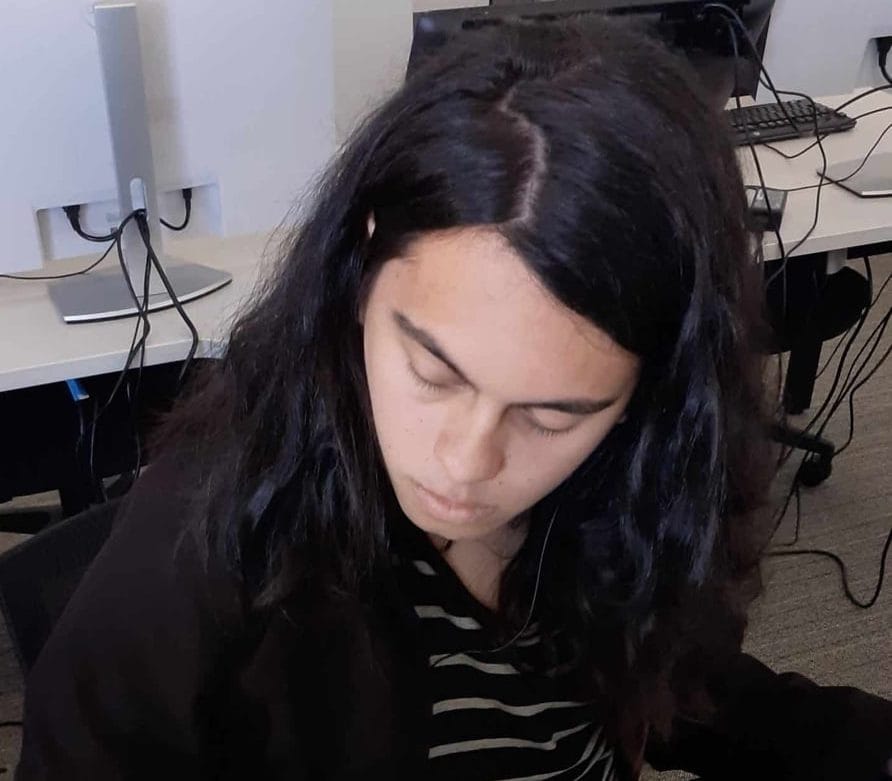
Invercargill Filmmaker, Patrick Gillies, has submitted a proposal to the Ministry of Culture and Heritage, that if successful, could see him establish an animation studio in Southland which will help provide work opportunities for skilled graduates and keep them in the region.
Mr Gillies is a Film Tutor with the School of Screen Arts at SIT- a business division of Te Pūkenga; in 2021 he received a $20 thousand dollar innovation grant from the Ministry of Culture and Heritage to produce The Ratbaggs, a short 2D-animated comedy about a family of anthropomorphic rats. The Ratbaggs is currently in production, with post-production scheduled for December and January.
When he received the grant, Mr Gillies said he was initially thinking only of the immediate – to get the project made and move on, however, the ministry suggested it could be for a long-term goal and at a certain point his thoughts shifted and came into line with the idea that it could achieve lasting outcomes for the region.
“I guess at the beginning I had tunnel vision… but when they [the ministry] said you might consider applying for funding for this creative enterprise… I could appreciate they were trying to encourage us to engage with the larger vision – their aim is that it should create a self-sustainable enterprise and long-term jobs in the arts.”
And it makes sense, he continued. “There are a huge number of talented animators who graduate from SIT and struggle to find work in 2D animation,” especially in children’s cartoons.
“Saturday morning kids’ cartoons is why they get into it in the first place,” he said, adding while there is always work to be found in the commercial sphere, making animation and infographics for insurance or power company ads for TV, “this is not the driving force behind most of them – it’s not the thing that set them alight when they were kids”, he said.
In terms of production houses who work in narrative 2D animation, Mr Gillies said there was effectively only one in NZ. “There is huge pressure to create advertising content because the money is there,” he explained. “It’s guaranteed income… it’s easier and more lucrative for production houses to produce the commercial material.”
Whereas making “the cool stuff” like kids’ cartoons is more difficult to get funded, and it meant there are limited opportunities for graduates. Mr Gillies said he didn’t like seeing graduates’ talents go to waste – if they wanted to stay local they would take work wherever they could – often in retail or supermarkets. “If they want to work in the field they trained for they have to leave, as most opportunities are abroad,” he continued.
“Their [the ministry’s] vision for this scheme started to crystallise for me. I thought, we have the graduates here, why don’t I set up a studio locally and harness all this talent?”
After submitting the proposal in mid-October, Mr Gillies should know by late-December if he’s been successful – the ministry collate public feedback and then make a decision based on that and the proposal. Competing against over 240 proposals for the same fund, Mr Gillies said statistically speaking, chances of gaining the funding were slim, “but I’d like to think our case is very strong!”, he added.
“Best case scenario is we secure the funding and then I’ll be frantically setting up a studio next year,” he said. This would see him working part-time in two roles, continuing as a film tutor at SIT and his studio involvement. Mr Gillies can see the potential of creating a symbiotic relationship between the animation studio and the School of Screen Arts.
“Then our graduates know there is a local studio which can provide opportunities for them. Establishing a local industry in Invercargill also helps secure SIT’s animation programme into the future.”
“I think it will be a bit of a game changer for many people here in Southland – it’ll provide a foothold for our graduates down here,” Mr Gillies said.
Hamish Small, Head of Faculty, New Media, Arts, Business & Computing (NMABC), added “SIT very much appreciates the vision shown by Patrick, not only in setting up an animation studio in the region, but also the opportunity it provides for our graduates and current students in gaining experience and employment without leaving the province. Such initiatives will only further enhance the Southland economy and its creative base.”
